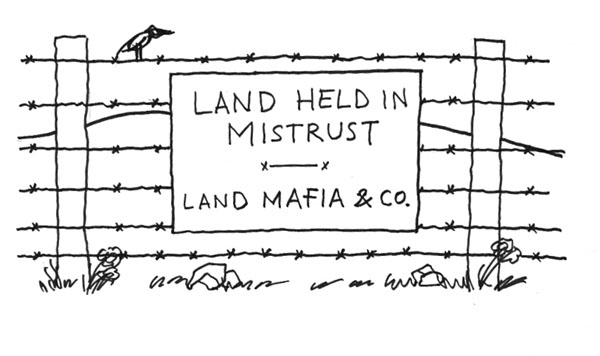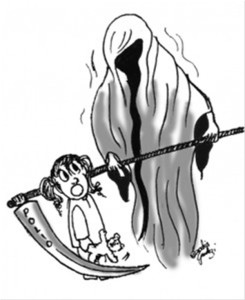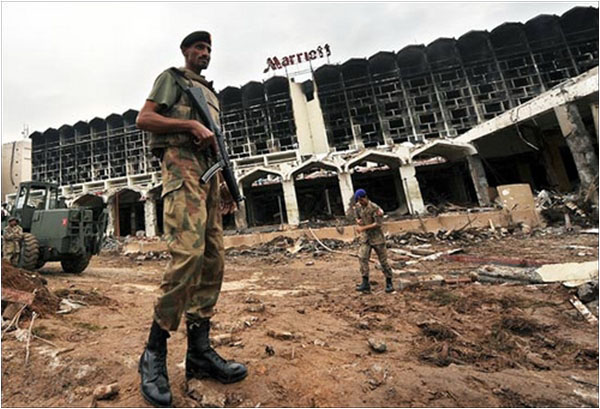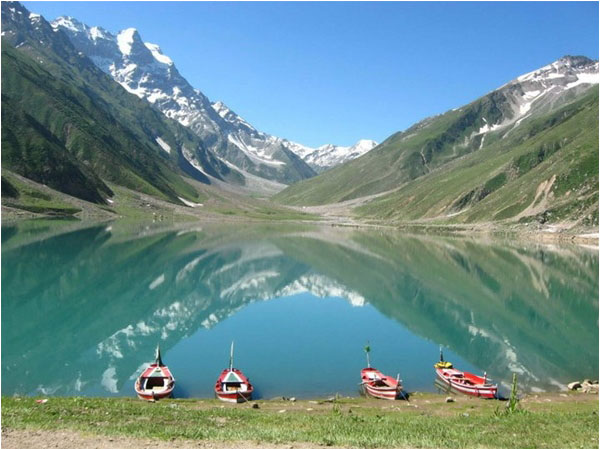
Panama part-II
Sir,
Now, the second edition of the Panama leaks is out, and 400 plus Pakistanis, most of whom are businessman, industrialists and politicians, have been exposed. Most if not all of this money belongs to ordinary Pakistanis who have no access to basic necessities. These Panaminian Pakistanis are only a few percent, and belong to a country where 70% of the population is living below the poverty line (if we look at all basic life indicators). This Panaminian money is around 70% of the education and health annual budgets of Pakistan. In Pakistan, we have 6 million poor students out of school, and all health indicators are troubling. Three to five children belonging to the Thar area are dying every day, and no one cares about them. The rural remote areas of Pakistan are the hubs of death due to manmade issues of governance. The human cost of this Panamian money is so high that no one can bear the penalty, if people revolt against the elite. Panama leaks have created strong waves of mistrust across the globe. One penalty that we can impose in this country is that all those who have been named in the leaks should be barred from holding or contesting public office positions. This will be a great limited penalty on the corrupt in our society. Suppose if such large sums of money was poured in different community work in Pakistan, then maybe we would have no regular death of children in Thar or maybe every Pakistani could have access to pure drinking water and sanitation.
Aijaz Ali Khuwaja,
Karachi.

Curse of land mafia
Sir,
Reference media reports about the occupation of Evacuee Property Trust land located in Nankana District, measuring over 17,000 acres, by criminals allegedly in collaboration with district management, law enforcement and other state institutions. A state and its institutions are funded by taxpayers, which apparently cannot protect the land placed under its trust, is a state which by definition qualifies to be a collapsed state with anarchy and chaos inflicting it. The sanctity of what constitutes the Second Defense Line along the Indian border also stands violated by the greed of a few. One hopes that Evacuee Property Chairman Sadiqul Farooq and CM Shahbaz Sharif can walk the walk rather than just talking the talk, and not bow to political exigencies and powerful land mafia with their immense clout.
It has become an all too familiar pattern, where state land is illegally occupied by powerful criminals with political clout and bureaucratic patronage, and construction is allowed to be carried out, being used as an excuse to regularize this gross irregularity, where billions are plundered by thugs, and the state alone is the loser. Thousands of acres of forest land in Punjab, KPK, Sindh and Balochistan have been gobbled by a powerful nexus on whose payroll are the some of the best leading eagles of the Supreme Court and high courts, seeking adjournments till such time that trees are cut down and forest land replaced by concrete construction, and this is then used to sanctify this illegality.
Even warnings by international agencies that Karachi’s reclaimed coast line faces the threat of submersion has not deterred the state from stopping the diminishing of mangroves and marshlands by a powerful land baron. It is this powerful economy that nourishes terrorism and crime in this country and today it poses the biggest threat to national security. Yet it continues unabated and unfortunately those very institutions tasked to protect the state and writ of law, are seen to be involved in this institutionalized corruption under the garb of endless welfare schemes.
It is not just an environmental disaster, but the consolidation of institutionalized corruption mafia in this country, which truly threatens the safety and future of this great country of ours.
Malik Tariq,
Lahore.

Honesty first
Sir,
Journalists and teachers must be honest, fair and objective in their work and conduct. Teachers and journalists are good judges of human behavior. They should have the ability to handle difficult situations with calm and cool heads.
A strong passion for their work and excellent communication skills are extremely important for teachers and journalists. Teachers in particular should be very confident public speakers and excellent performers in class. A teacher should have a pleasant and presentable personality and she/he must be able to speak clearly, smoothly and with authority.
Teachers should be strict with students but at the same time they have to be very empathetic. Without earning students’ trust and respect a teacher can’t perform her/his duties, therefore a teacher ought to be friendly. However, a teacher should avoid building personal friendships or emotional bonds with students.
Teachers and journalists must be true believers in fairness and equality, and this should reflect in their professional conduct. Journalists and teachers are not revengeful and they do not have inflated egos.
Teachers should be accessible and have to be very good listeners. Teachers are very patient and they encourage critical thinking among their students. They invite students to challenge them. Teachers do not discourage or ridicule their students, if students ask difficult or even silly questions.
Teachers must not force their personal views, values and beliefs upon their students. A teacher should share diverse point of views with her/his students especially if the teacher is discussing a controversial, sensitive or contested issue, policy, ideology or event.
Journalists must not assume, they must search and find facts. Journalists not only ask questions that the public wants to ask, journalists also ask questions which others can’t ask. Journalists keep their emotions, wishes and desires out of the news they report.
Popularity must not be a driving force for a journalist. She/he should report facts even if such reporting makes her/him unpopular but the reporting has to be factual and evidence based.
There are many other points, which can be included to the above list but I feel a bit disappointed to observe that schools, colleges and universities do not have appropriate criteria for selecting teachers. Media houses are not interested in promoting healthy journalism either.
Higher degrees and grades alone don’t make good teachers. Similarly, expensive and shiny clothes, a loud voice and higher ratings aren’t enough to become a good journalist or anchorperson. ?
Shiraz Paracha,
Lahore.
Immobilised
Sir,
The Independent Monitoring Board (IMB) for polio has stated in its latest report that Pakistan has ‘broken a promise made to its children’. It says four out of five children suffering from polio right now are from Pakistan. Pakistan’s fight against polio is lagging far behind other countries, the report emphatically states. It has termed the Prime Minister’s Polio Cell a “shadow boxing entity” and recommended establishment of a body to eradicate the crippling disease from the country on the patterns of efforts to cope with a natural disaster.
The IMB, which meets twice a year and consists of nine members who are international experts, reports that the situation in Pakistan is ‘dire’. It holds Pakistan responsible for significantly slowing down the global march towards eradicating polio. “Pakistan’s polio virus has spread to Syria, causing a major outbreak amidst the country’s civil war. Pakistan’s polio virus has also spread to Israel, West Bank and Gaza and Iraq,” the report states, saying “each outbreak overstretched the global program’s resources and credibility”.
The picture depicted by IMB is indeed alarming. All efforts made by successive governments, and all the resources, both national and international, invested for decades to eradicate polio in Pakistan seem to have been rendered ineffective due to a lack of effective implementation of the polio eradication program in the country. Pakistan’s failure to completely eradicate the menacing disease has now acquired global dimensions. Lately, the World Health Organization (WHO) slapped international travel restrictions on Pakistan, Cameroon and Syria over the countries’ failure to control the spread of the deadly virus.
According to WHO rules, it will be mandatory for all residents and long-term visitors (over 4 weeks) from Pakistan, Cameroon and Syria to receive a dose of Oral Polio Vaccine (OPV) or Inactivated Polio-virus Vaccine (IPV) between 4 weeks and 12 months prior to international travel. Recommendations for the travel restrictions were put forward by a 21-member International Health Regulations Emergency Committee which was formed on the directive of WHO board members in Geneva.
The Government of Pakistan will have to get its act together to quickly and effectively address this issue of vital national and international concern.
M Fazal Elahi,
Islamabad.
United we stand
Sir,
The whole nation must stand united in support of the government and our armed forces to fight a war against terrorists, who have inflicted more damage in terms of precious human lives, massive economic deficit, and loss of international credibility than any declared war against known external enemies.
This should be the battle for Pakistan, to eliminate all private armed militias, who threaten writ of state, collecting extortion money, harming our defense installations, and violating basic human rights guaranteed to all citizens of this country.
We should never allow any group to arm itself and enforce their writ through intimidation and use of force, denying citizens the right to practice their faith and forcing them to lead their lives in accordance with their distorted version of Islam.
It is time that Pakistan decides to follow the path and vision of the Father of the Nation, and becomes a truly democratic welfare state, whose government is answerable to people and where all institutions work within the ambit of the 1973 Constitution.
Bilal Anwar,
Lahore.

How to end terrorism
Sir,
For the modern state to govern effectively with complete jurisdiction over its territory, it was established through the process of political evolution that the state alone shall organize, finance and arm a disciplined army in service of the state, appointed in accordance with rules and trained to function strictly in accordance with the rules of discipline and in line with the constitution and the law of land.
After the bitter US Civil War, where private militias raised by warring states clashed and fought a bloody conflict, the country adopted a constitution banning all private militias. This same principle has been adopted by every country, whether functioning as parliamentary democracy or with a presidential system of governance, irrespective of which ideology or faith they follow. The wheel has been invented, and any country that allows private militias to be raised and funded by religious or political parties or groups, with an agenda to fight a war, or as vigilante groups, has always ended up seeing these militias turning against their mentors whenever there has been a conflict of interest.
Pakistan today faces biggest threat from within, by militias allowed to be formed and housed within its territory by the Zia junta, who allowed individual mercenaries to brainwash and recruit young men, training them to wage a war in neighboring country, finance by a superpower eager to avenge its defeat in Vietnam. After the US had achieved its objective, these young men trained only to use weapons, were left stranded, without any financial security or plans for relocation, becoming easy recruits to fight any agenda funded by enemies of Pakistan and few fundamentalist outfits, for whom peace was unacceptable since their funding and nuisance depended on continued state of warfare.
Zia promoted the growth of sectarian, ethnic and regional nationalist groups in order to prevent a unified federal political opposition to challenge his illegitimate rule. The lure of billions of rupees in criminal earnings of some of these private militias in Karachi attracted the Taliban to claim a share in this huge tax-free pie in the financial hub of Pakistan.
Unless and until the Pakistan state, with all its firepower and resources, cracks down on all private militias, terrorism cannot be eliminated.
Tariq Ali,
Lahore.

Tourism and terrorism
Sir,
Tourism is one of the most rapidly growing industries in the world. It is an important source of income generation, job creation, poverty reduction, foreign exchange earnings and promotion of cross-cultural understanding.
Without any doubt, Pakistan is one of the most naturally beautiful and amazing regions in the world, with attractions like the Mohenjo-daro, Harappa, Taxila, Himalayan hills and mountains, Chitral and Hunza valleys, impressive domes of mosques in Lahore and Multan, beautiful lakes and so much more. Pakistan has a lot to offer to the curious eyes of a tourist. After the economic and security crises, tourism decreased greatly as visitors reported the land to be unsafe.
The greatest obstacle to the growth of tourism is the law and order problem. Pakistan has been subject to religious violence in which a number of foreigners have been targeted. There are also many cases where tourists have been physically attacked, robbed and sexually harassed.
The security of foreign tourists should be a major concern for the government. They come here with foreign currency and help Pakistan’s economy. Once they are issued visas, there should not be any extra hurdles in their way to visit places they have come to see. We need to facilitate them and provide them invisible security so that they could enjoy their holidays without any fear and worry. On the other hand, we must also pay serious attention to facilitate our own domestic tourists.
Pakistan has one of the most attractive physical environments in the world but its social environment is not tourism friendly. Foreigners look for an environment in which they can enjoy themselves to the full. This is possible only if all the ingredients of enjoyment are present with the least damage of privacy. This does not mean that we should completely forget our cultural values. We can provide a balance between our values and the demand of the international travelers.
Pakistan does not have a good international image. Image building is a matter of both perception and reality. The reality in Pakistan is not as bad as the perception of it. Therefore, besides improving the tourism environment, we have to erase the negative perception about the country.
Bad roads, flight cancellation and delays, lack of connectivity to various locations, and communication facilities are among the factors that discourage tourists.
What we need here is a good tourism policy and full government support. One of the priorities of new government should be tourism as a leading sector of Pakistan’s economy and help it to bring the tourism industry back on its feet. We can easily defeat terrorism with tourism by creating income and employment opportunities for the people. If the tourism industry grows, other businesses such as hotels, restaurants, transport, handicrafts, shopping centers, and other related businesses will benefit at the same time.
Arslan Nadeem,
Lahore.

